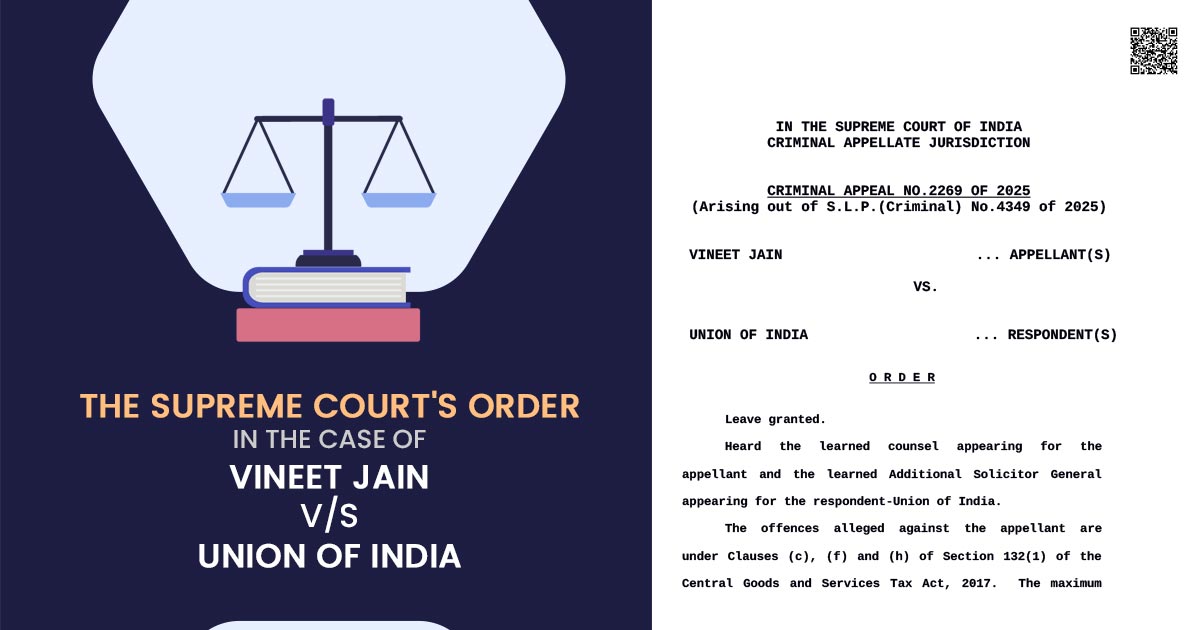
The Supreme Court recently showed surprise at the decisions made by both the High Court and the Magistrate Court to deny bail to a person accused of breaking rules related to the Central Goods and Services Tax Act.
Bail is granted normally in these cases, the court said. The offences alleged against the appellant were under Clauses (c), (f) and (h) of Section 132(1) of the Central Goods and Services Tax Act, 2017. The maximum sentence is 5 years with a fine.
Read Also: Supreme Court Directs CBIC to Set Practical Deadlines for Fixing Errors in GST Returns
In this situation, a formal document outlining the charges was submitted, and the person accused of the crime was held in custody for almost seven months. After the high court in Rajasthan refused to grant him bail, he decided to take his case to the Supreme Court.
The bench, comprising Justice Abhay S. Oka and Justice Ujjal Bhuyan, observed that bail should normally be granted in such cases.
“We are surprised to note that in a case like this, the appellant has been denied the benefit of bail at all levels, including the High Court, and ultimately, he was forced to approach this Court. These are the cases where, in the normal course, before the Trial Courts, the accused should get bail unless there are some extraordinary circumstances.”
The Court, the evidence in the case is documentary in nature and that the accused has no antecedents. The Supreme Court, setting aside the order of the High Court, granted bail to the accused.
| Case Title | M/s. Vineet Jain Versus Union of India |
| Citation Criminal Appeal Arising Out of SLP(Criminal) No. | 4349/2025 |
| Counsel For Appellant | Bhupendra Pratap Singh, Adv. Mr. Devendra Kumar Shukla, AOR; Mr. Nakul Nirwan, Adv. Mr. Rishabha Singh, Adv. |
| Counsel For Respondent | Mr. Raghvendra P. Shankar, ASG Mr. Gurmeet Singh Makker, AOR Mr. Karan Lahiri, Adv. Mr. B.K.Satija, Adv. Mr. Bhuvan Kapoor, Adv. |
| Supreme Court | Read Order |









